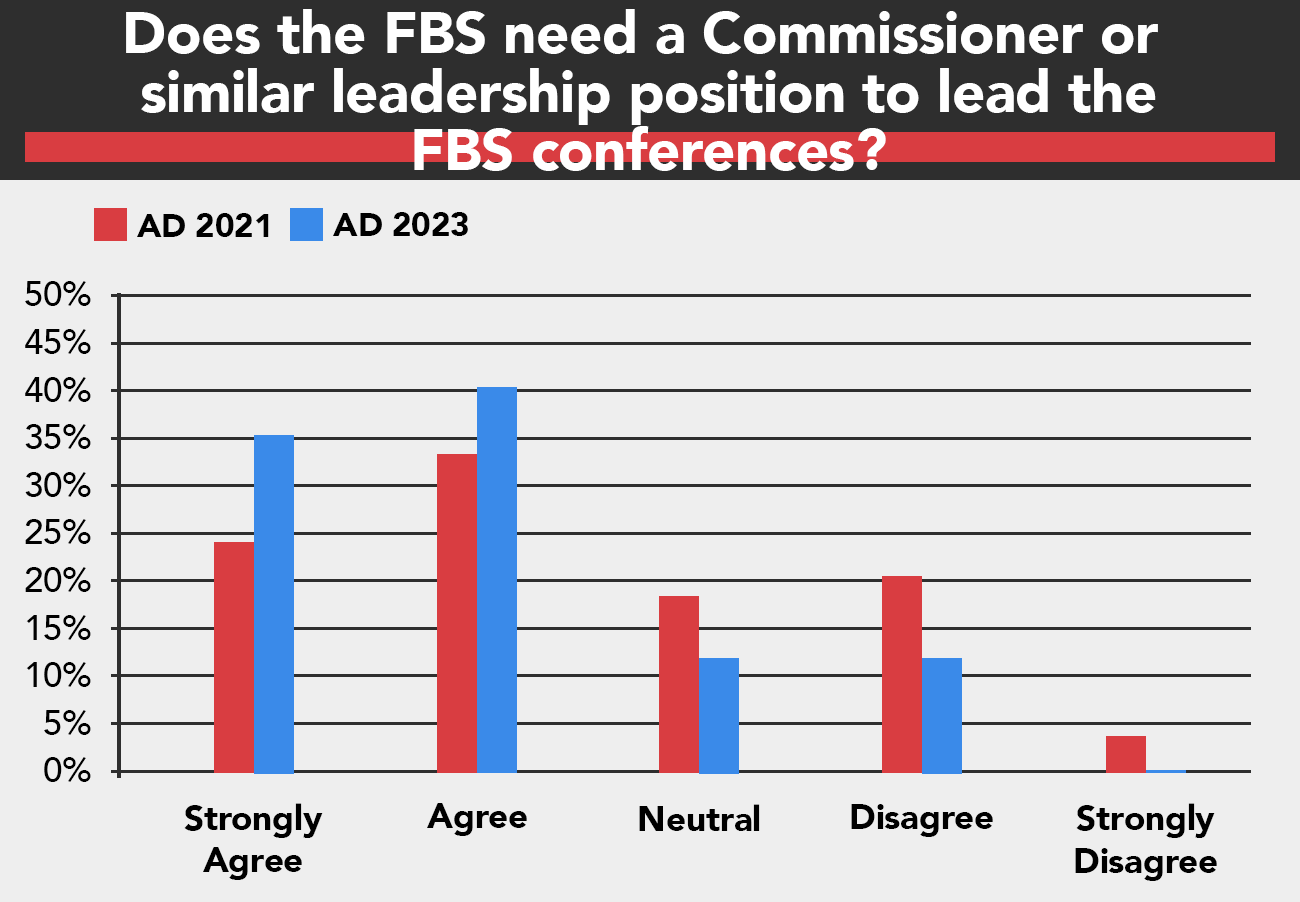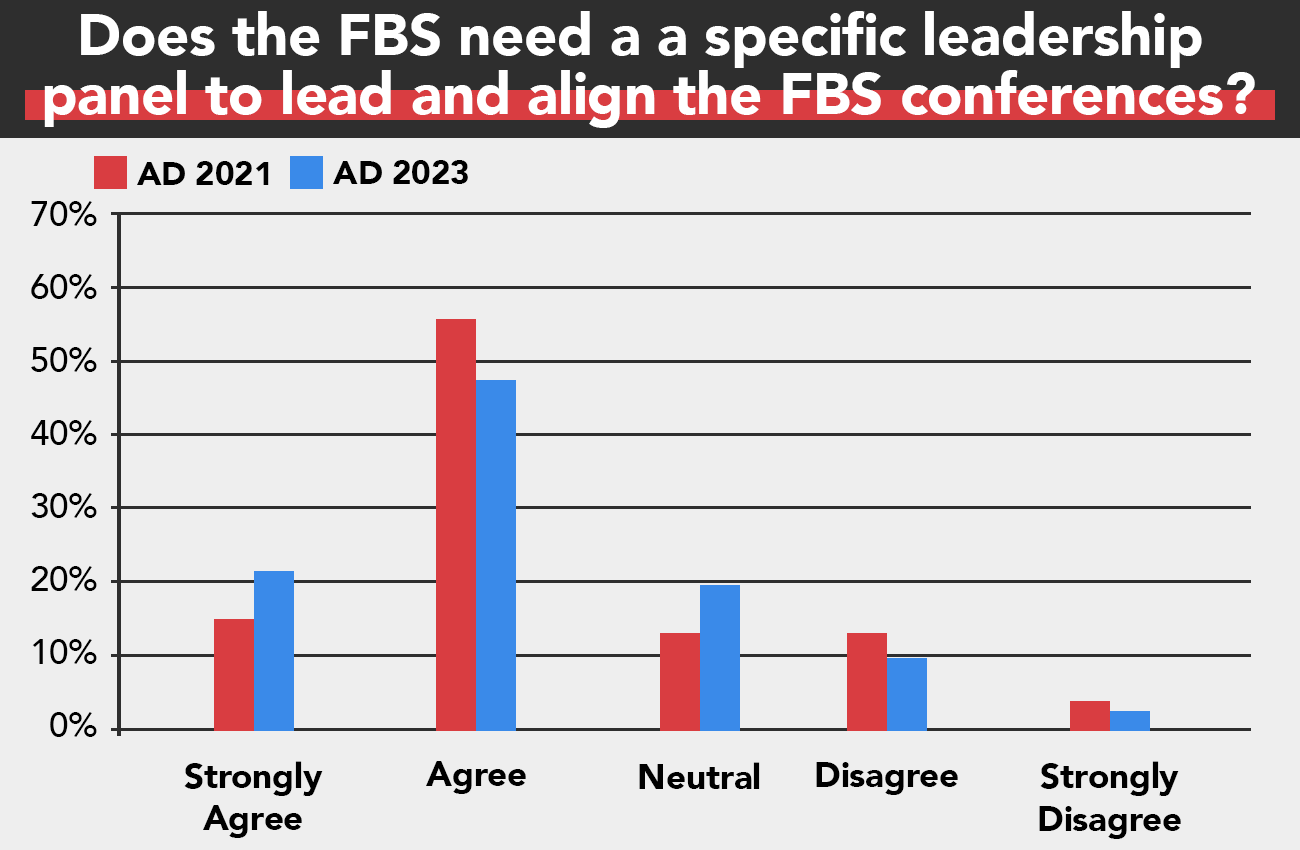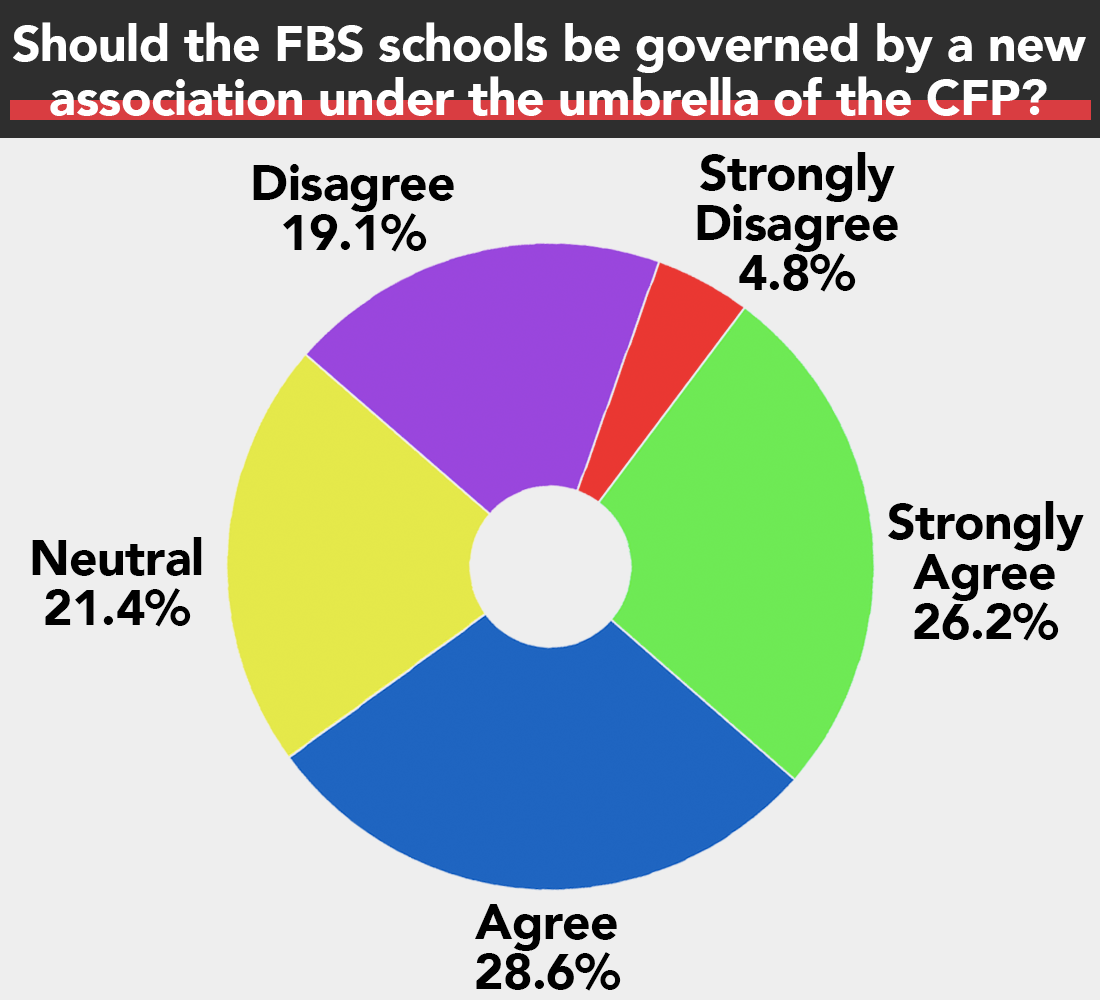Two years ago, AthleticDirectorU reached out to over 100 FBS stakeholders to gauge their reaction to the Knight Commission’s recommendation that FBS be removed from NCAA governance. The Knight Commission’s report drew criticism from several high-profile industry leaders, including SEC Commissioner Greg Sankey, who at the time asserted that the “NCAA is vitally important; it’s imperfect, but an important national governing body. The suggestion that we take football (and) create another governing body doesn’t pay attention to reality. If the suggestion is [to] go start something else, then you go down and say, ‘But we want to keep basketball together.’ The report ignores some of the tension that exists, some of the problems identified, like the range and economic support for college athletics. Those create tensions. The fact that we support football very well benefits a broad-base athletics program.”
Sankey’s position notwithstanding, a majority of FBS leaders who spoke with ADU at the time indicated they would be in favor of the appointment of a commissioner or a panel specifically designed to lead and align FBS conferences. In fact, asked whether FBS needed a commissioner or similarly appointed leadership position to oversee the FBS conferences, 24.1% “strongly agreed” while 33.3% “agreed.” The response regarding a leadership panel was even more stark, with 14.8% “strongly” agreeing with the idea and 55.6% agreeing.
Since that survey, the industry, some might say, has aged in dog years: NIL is no longer in its infancy, the term “collective” is now part of the daily lexicon, the Pac-12 will soon exist only in scrapbooks, there’s a new NCAA president, and we don’t say “wild, wild west” nearly as much as we used to – and those are just a fraction of the changes. With so much in flux, ADU thought it would be constructive to revisit the issue of FBS governance. By and large, what we found was that over the last two years the desire to oversee FBS independently has only increased.

As you can see, the number of FBS leaders who “agree” or “strongly agree” FBS needs a commissioner or similar leadership position to lead the FBS conferences has increased from 57.4% to 76.2%. Overall, fewer disagreed with the idea and, notably, not a single respondent indicated that they “strongly disagreed.”
One FBS AD tells ADU such a model “would only work if the conference commissioners ceded some of their power and autonomy and allowed this new commissioner to make decisions on behalf of all the conferences. Because of this, I don’t think it would work. [There] would end up just being another voice at the table without any real authority to get things done on behalf of all FBS conferences. Furthermore, all the FBS conferences are so diverse, especially as it comes to funding models, that a commissioner or leadership group would not be effective for all FBS conferences. It may work if we separate out the conferences by Group of Five and Power Four.”
Another FBS AD offers a similar perspective. “I would say the P5 needs it. They are clearly heading towards a professional model, but there are also FBS schools who will choose to keep an educational model and need separate leadership, which could be the NCAA.”
Two years ago, 14.8% of respondents said they “strongly agree” with the statement that the “FBS needs a specific leadership panel to lead and align the FBS conferences,” while 55.6% said they “agree.” This year, the number who “strongly agree” increased by 6.6% while the number who “agree” decreased by 7.9%.

One AD who agreed with the statement also submitted that “this role or panel should be focused and/or separate over the A5 conferences, since those programs drive the untenable trajectory of college athletics.”
This year, ADU added another, more overarching question to the survey: “Should the FBS schools be governed by a new association under the umbrella of the College Football Playoff (CFP)?”

As indicated above, 54.8% “agree” or “strongly agree,” that FBS should be governed by a new CFP-related association, compared to 23.9% who “disagree” or “strongly disagree.”
An FBS AD who disagrees with the premise of the question explains that “FBS governance can be under the NCAA umbrella, especially since there is infrastructure already in place. However, the governance structure must be more nimble than the current NCAA structure so decisions can be made more quickly and easily.”
Another AD who was part of the 21.4% who were neutral on the topic believes a priority should be placed on “determining how to take FBS in a more national direction while creating a more regional approach for the remaining sports. … Title IX must be accounted for in this approach which has the potential to create challenges with one sport under a different governance structure from all of the rest.”
Beyond just the questions we asked, we also invited ADs to share their thoughts overall on potential FBS governance changes, and the responses varied. Some were adamant that Power 5 and Group of 5 programs should themselves be governed differently, “primarily because of the huge disparity in funding models,” as one AD put it. Some pointed out that Title IX makes revenue-sharing with football and basketball a non-starter.
Meanwhile, one FBS AD offered a more comprehensive evaluation. “The biggest mistake we ever made was allowing the media … to suggest that we needed autonomy legislation. The conferences now known as the Group of 5 balanced the larger budget schools who call themselves the Power 5. That balance was important to the perception of who we are and aren’t by controlling spending. The ADs at every FBS institution should control the final vote on all legislation and replace the DI Council.”
If the past two years are a precursor, then it will be fascinating to see where we are in 2025. Maybe ChatGPT will have the answer.

